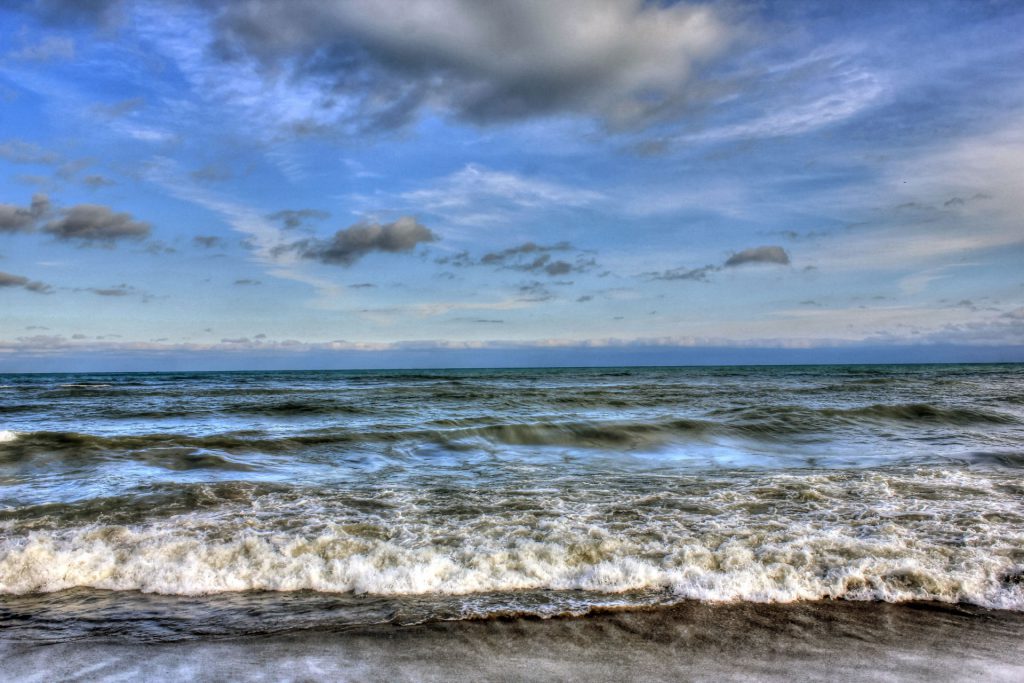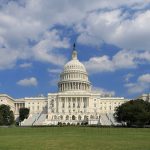Future of Lake Michigan Gets Discussion
Experts say progress has been made protecting Great Lakes, but not enough.
When it comes to protecting Lake Michigan and other bodies of water across the Great Lakes region, progress has been made. But much more needs to be done.
This was the overarching consensus at a panel discussion last week that touched on such issues as water quality, the controversial out-of-basin diversion requests and the role politics can play in ensuring that a sacred North American natural resource — and the world’s biggest source of fresh water — is preserved.
WisPolitics hosted the symposium, “Coping with diversions, invasive and politics in the Great Lakes region,” in conjunction with the government of Canada and the UW-Milwaukee’s School of Fresh Water Sciences and its Great Lakes WATER Institute.
[inartilcead]Numerous pieces of legislation have been drafted with water preservation in mind, including the Great Lakes Compact and the Great Lakes Restoration Initiative.
While there has been forward momentum, the efforts have faced challenging headwinds, said J. Val Klump, dean of UWM’s School of Freshwater Sciences and Great Lakes Water Institute.
“The Great Lakes are going in both directions,” Klump said. “We still have a lot of work to do with respect to the health of the Great Lakes.
Klump and other speakers at the symposium, held at the University Club in downtown Milwaukee on Thursday and attended by about a hundred people, called on additional resources — namely funding — to go toward eradicating invasive species and ramping up other environmental quality-control measures.
Stephen Galarneau of the Wisconsin Department of Natural Resources said policy debates surrounding Lake Michigan and the four other Great Lakes have typically been an either-or proposition.
From Galarneau’s vantage point, proponents have either rallied for the environment or the economic impact. But he said he thinks the two philosophies can work hand-in-hand: “We need to get rid of that false dichotomy.”
In terms of solutions, Klump offered up his own suggestions, including an across-the-board surcharge of 2 cents per gallon to water consumers. “We need a way to pay for this, and we all need to chip in,” Klump said.
Klump said he also would like to put a reasonable timetable on the cleanup efforts within the Great Lakes, based on funding and other metrics. “I think setting a target date … puts some immediacy on this in solving this issue.”
The panelists also dove into the diversion requests that have been controversial since the Great Lakes Compact was inked a decade ago.
“The compact is working as expected,” said Peter Annin, a champion of the lakes whose professional credits include authoring the book, “The Great Lakes Water Wars.” He noted litigation might crop up as diversions are challenged, “but that’s to be expected and doesn’t mean (the compact) is not successful.”
In southeastern Wisconsin, requests to divert water from Lake Michigan have drawn scrutiny, including applications from Waukesha for the city’s drinking supply and Racine to fortify Foxconn’s operations.
A year ago, the Wisconsin Department of Natural Resources approved Racine’s request to divert 7 million gallons of water daily from Lake Michigan to support Foxconn’s operations.
More recently, the state agency’s ruling has been challenged from Midwest Environmental Advocates, which has filed a brief with an administrative law judge. A decision on the brief could be handed down this summer.
Molly M. Flanagan, vice president for public policy at the Alliance for the Great Lakes in Chicago, said the compact is effective, on the surface, though, in her view, there are flaws.
“The compact does a great job of protecting us,” Flanagan said. “It does not do a great job of protecting individual water bodies.”
Thursday’s talk on the Great Lakes and public policy serves as a prelude to the 2019 Governors and Premiers’ Leadership Summit, which is being held in Milwaukee this year from June 14-16.
A similar, municipal-level meeting-of-the-minds throughout the Great Lakes region also is set to take place in southeastern Wisconsin when the forum, “Living Blue: Transforming Waterfronts,” is held in Sheboygan from June 5-7.
If you think stories like this are important, become a member of Urban Milwaukee and help support real independent journalism. Plus you get some cool added benefits, all detailed here.





















